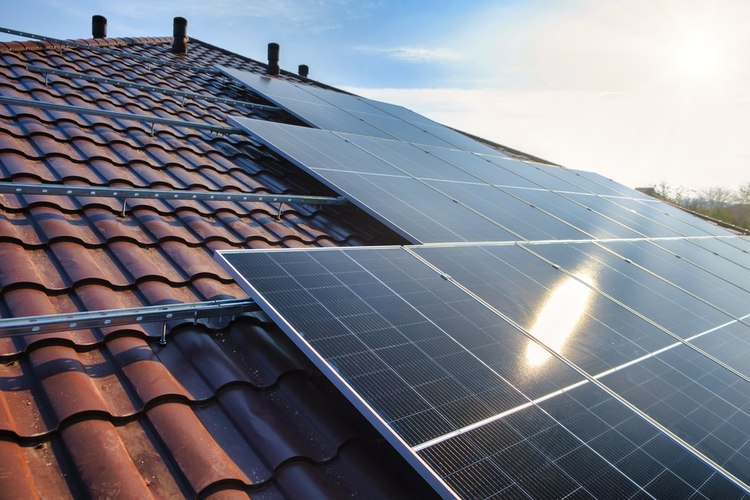Heat Pump Costs in the UK: Key Factors and Trends to Watch in 2025
As the UK moves towards greener energy solutions, heat pumps are gaining traction as an efficient alternative to traditional heating systems. With the government's push for low-carbon technologies, understanding the costs and trends associated with heat pumps is crucial for homeowners and industry professionals alike. This article explores the key factors influencing heat pump pricing and installation in the UK, as well as the anticipated trends for 2025.

What are the current heat pump cost trends in the UK?
Heat pump costs in the UK have been gradually decreasing over the past few years, thanks to increased demand and technological advancements. As of 2023, the average cost of an air source heat pump installation ranges from £7,000 to £13,000, while ground source heat pumps typically cost between £14,000 and £25,000. However, these prices are expected to continue declining as the market matures and production scales up.
How will government initiatives impact heat pump pricing?
The UK government’s commitment to net-zero emissions by 2050 has led to various initiatives supporting heat pump adoption. The Boiler Upgrade Scheme, launched in 2022, offers grants of up to £5,000 for air source heat pumps and £6,000 for ground source heat pumps. This scheme is set to run until 2025, potentially reducing the upfront costs for homeowners. Additionally, the government’s target of installing 600,000 heat pumps per year by 2028 is likely to drive further cost reductions through economies of scale.
What factors will affect heat pump pricing in 2025?
Several factors are expected to influence heat pump costs in 2025:
-
Technology advancements: Ongoing research and development in heat pump technology may lead to more efficient and cost-effective systems.
-
Market competition: As more manufacturers enter the market, increased competition could drive prices down.
-
Supply chain improvements: Streamlined production and distribution processes may reduce overall costs.
-
Skilled labor availability: The growth of the heat pump industry may lead to a larger pool of trained installers, potentially reducing installation costs.
-
Raw material prices: Fluctuations in the cost of materials used in heat pump manufacturing could impact final pricing.
What installation considerations should UK homeowners keep in mind?
When considering a heat pump installation, UK homeowners should be aware of several factors:
-
Property suitability: The age, size, and insulation levels of a home can affect the heat pump’s efficiency and installation requirements.
-
Existing heating system: Converting from a high-temperature system (like radiators) to a low-temperature heat pump system may require additional modifications.
-
Available space: Ground source heat pumps require sufficient outdoor space for the ground loop, while air source units need adequate clearance around the external unit.
-
Planning permissions: Some installations may require planning permission, particularly in conservation areas or for listed buildings.
-
Energy tariffs: Switching to a heat pump-friendly electricity tariff can help optimize running costs.
How does energy efficiency impact home heating costs with heat pumps?
Energy efficiency plays a crucial role in determining the overall costs and effectiveness of heat pump systems. In the UK, where older housing stock is common, improving a home’s energy efficiency can significantly enhance heat pump performance and reduce running costs. Key considerations include:
-
Insulation: Proper insulation of walls, roofs, and floors helps maintain consistent temperatures and reduces heat loss.
-
Double or triple glazing: Energy-efficient windows minimize heat transfer and improve overall thermal performance.
-
Draught-proofing: Sealing gaps around windows, doors, and other openings prevents heat escape and improves comfort.
-
Smart controls: Advanced thermostats and zoning systems allow for more precise temperature management, optimizing energy use.
-
Complementary technologies: Combining heat pumps with solar panels or battery storage can further reduce electricity costs and carbon emissions.
What are the projected costs and savings for heat pumps in 2025?
Based on current trends and expert projections, here’s an overview of anticipated heat pump costs and potential savings in 2025:
| Heat Pump Type | Estimated Installation Cost | Annual Running Cost | Potential Annual Savings vs. Gas Boiler |
|---|---|---|---|
| Air Source | £5,000 - £10,000 | £500 - £700 | £100 - £300 |
| Ground Source | £12,000 - £20,000 | £400 - £600 | £200 - £400 |
Prices, rates, or cost estimates mentioned in this article are based on the latest available information but may change over time. Independent research is advised before making financial decisions.
While the initial installation costs for heat pumps are expected to decrease by 2025, they will likely remain higher than traditional gas boilers. However, the long-term savings potential, combined with government incentives and the increasing cost of fossil fuels, may make heat pumps an increasingly attractive option for UK homeowners.
As the UK continues its transition towards sustainable heating solutions, the heat pump market is poised for significant growth and innovation. Homeowners considering this technology should weigh the upfront costs against long-term benefits, including reduced carbon emissions and potential energy savings. With ongoing technological advancements and supportive government policies, heat pumps are set to play a crucial role in the UK’s sustainable energy future.



